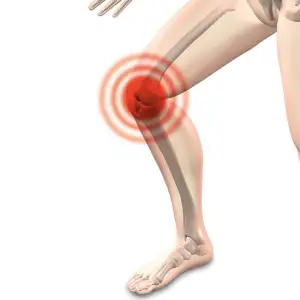Revitalize Your Health with the Power of Juice: A Comprehensive Guide to the Juice Diet

In today's fast-paced world, where processed foods and unhealthy eating habits have become the norm, it is no wonder that many people are looking for ways to revitalize their health. One such method gaining popularity is the juice diet. The juice diet involves consuming only fresh fruit and vegetable juices for a certain period of time, typically ranging from a few days to a few weeks. This article will serve as a comprehensive guide to help you understand the benefits, workings, and types of juices involved in the juice diet. So get ready to embark on a journey towards better health and vitality!
Benefits of the Juice Diet
The Juice Diet offers a multitude of benefits for those seeking to revitalize their health. Firstly, it provides a convenient and easy way to consume a wide variety of fruits and vegetables, ensuring that you receive an abundance of essential vitamins, minerals, and antioxidants. These nutrients are crucial for maintaining optimal health and boosting your immune system.
Additionally, the Juice Diet can aid in weight loss as it is low in calories while still providing necessary nutrients. By replacing high-calorie meals with nutrient-dense juices, you can create a calorie deficit and shed excess pounds.
Furthermore, the Juice Diet promotes detoxification by flushing out toxins from your body. The high water content in juices helps to hydrate your cells and eliminate waste products more efficiently. This cleansing process can lead to clearer skin, improved digestion, and increased energy levels.
Moreover, the Juice Diet supports gut health by providing a concentrated source of fiber. Fiber aids in digestion and promotes regular bowel movements, reducing the risk of constipation and improving overall gut function.
Lastly, incorporating fresh juices into your diet can enhance mental clarity and focus. The vitamins and minerals present in these juices nourish your brain cells, improving cognitive function and reducing brain fog.
In summary, the Juice Diet offers numerous benefits including increased nutrient intake, weight loss support, detoxification, improved gut health, and enhanced mental clarity. By embracing this diet as part of your lifestyle, you can revitalize your health and experience a renewed sense of well-being.
How the Juice Diet Works
The juice diet, also known as juicing or juice fasting, is a popular method for detoxifying the body and promoting weight loss. The concept behind this diet is simple: instead of consuming solid foods, you replace them with fresh fruit and vegetable juices.
By doing so, you provide your body with essential nutrients while giving your digestive system a break. This allows your body to focus on eliminating toxins and rejuvenating itself. The high concentration of vitamins, minerals, and antioxidants in the juices helps to nourish your cells and support overall health.
During a juice diet, it's important to consume a variety of juices made from different fruits and vegetables. This ensures that you receive a wide range of nutrients. It's recommended to include both fruits and vegetables in your juices to maintain a balanced intake of carbohydrates, proteins, and fats.
To make the most out of the juice diet, it's advisable to drink freshly squeezed juices rather than store-bought ones. Freshly made juices contain higher levels of enzymes and nutrients since they haven't been pasteurized or processed.
It's important to note that the juice diet should not be followed for an extended period without medical supervision. While it can be an effective way to kickstart weight loss or cleanse your body temporarily, it may not provide all the necessary nutrients for long-term sustainability.
Incorporating regular exercise and maintaining a balanced diet after completing the juice diet is crucial for maintaining good health. It's also recommended to consult with a healthcare professional before starting any new dietary regimen, especially if you have any underlying health conditions.
Overall, the juice diet works by providing concentrated nutrients while allowing your body to detoxify and recharge. When done correctly and in moderation, it can be an effective tool for improving overall health and well-being.
Types of Juices to Include in the Diet
When it comes to the Juice Diet, there are endless possibilities for creating delicious and nutritious juices. Here are some types of juices that you can include in your diet:
1. Green Juices: These juices are made primarily from leafy green vegetables like spinach, kale, and Swiss chard. They are packed with vitamins, minerals, and antioxidants that help detoxify the body and boost energy levels.
2. Citrus Juices: Oranges, lemons, grapefruits, and limes are excellent choices for juicing. They are rich in vitamin C, which strengthens the immune system and promotes healthy skin.
3. Berry Juices: Berries such as strawberries, blueberries, raspberries, and blackberries are not only delicious but also high in antioxidants and fiber. They can improve digestion and support weight loss.
4. Root Vegetable Juices: Carrots, beets, and sweet potatoes make great additions to your juice diet. These vegetables provide essential nutrients like beta-carotene and potassium while adding a natural sweetness to your juices.
5. Herbal Infusions: Adding herbs like mint, basil, ginger, or parsley to your juices can enhance their flavor profile while providing additional health benefits. For example, ginger helps with digestion while mint provides a refreshing taste.
Remember to experiment with different combinations of fruits and vegetables to find the flavors that you enjoy the most. It's important to include a variety of juices in your diet to ensure you get a wide range of nutrients for optimal health.
Tips for a Successful Juice Diet
1. Plan ahead: Create a meal plan and shopping list to ensure you have all the necessary ingredients for your juices. This will help you stay organized and committed to your diet.
2. Choose fresh, organic produce: Opt for fruits and vegetables that are in season and preferably organic. This ensures that you are getting the maximum nutritional benefits from your juices.
3. Variety is key: Don't stick to just one or two types of juices. Experiment with different combinations of fruits and vegetables to keep your taste buds excited and to ensure you are getting a wide range of nutrients.
4. Stay hydrated: In addition to consuming juices, it's important to drink plenty of water throughout the day. This helps flush out toxins from your body and keeps you hydrated.
5. Listen to your body: Pay attention to how your body feels during the juice diet. If you're feeling weak or lightheaded, it may be a sign that you need more calories or nutrients. Consider adding a small snack or consulting with a nutritionist.
6. Be mindful of portion sizes: While juices can be packed with nutrients, they can also be high in natural sugars. Be mindful of portion sizes and try not to exceed recommended daily calorie intake.
7. Incorporate exercise: Engaging in regular physical activity can enhance the benefits of the juice diet by boosting metabolism and promoting overall well-being.
8. Seek support: Joining online communities or finding a buddy who is also on a juice diet can provide motivation and accountability throughout your journey.
By following these tips, you'll be well on your way to experiencing the rejuvenating effects of the juice diet while maintaining a healthy lifestyle.
Potential Risks and Precautions
While the juice diet can offer numerous health benefits, it is important to be aware of potential risks and take necessary precautions. Here are a few things to consider before starting the juice diet:
1. Nutritional Imbalance: Since the juice diet primarily consists of fruits and vegetables, it may not provide all the essential nutrients your body needs. It is crucial to ensure that you are still getting a balanced intake of proteins, fats, and carbohydrates.
2. Caloric Intake: Juices are generally low in calories compared to solid foods. While this can aid weight loss, it is important to monitor your caloric intake to avoid excessive calorie restriction, which can lead to nutrient deficiencies and muscle loss.
3. Blood Sugar Levels: Certain juices, especially those high in natural sugars like fruit juices, can cause a rapid spike in blood sugar levels. If you have diabetes or other blood sugar-related conditions, it is advisable to consult with a healthcare professional before starting the juice diet.
4. Digestive Issues: Some individuals may experience digestive issues such as bloating or diarrhea when consuming large quantities of raw fruits and vegetables in juice form. Gradually introducing juices into your diet and ensuring proper hygiene during preparation can help mitigate these risks.
5. Medications and Medical Conditions: If you are taking medications or have any underlying medical conditions, it is crucial to consult with your healthcare provider before embarking on the juice diet. Certain medications may interact negatively with certain fruits or vegetables.
6. Sustainability: The juice diet may not be sustainable as a long-term dietary approach due to its restrictive nature. It is important to view it as a short-term cleanse or detox rather than a permanent solution for weight loss or overall health improvement.
Always remember that each individual's body is unique, so what works for one person may not work for another. It is recommended to seek guidance from a registered dietitian or nutritionist to ensure that the juice diet is suitable for your specific needs and goals.
Frequently Asked Questions about the Juice Diet
1. Is the juice diet suitable for everyone?
The juice diet is generally safe for most people, but it may not be suitable for individuals with certain medical conditions or those who are pregnant or breastfeeding. It's always best to consult with a healthcare professional before starting any new diet.
2. Can I consume other foods while on the juice diet?
The juice diet typically involves consuming only juices for a certain period of time. However, some variations allow for incorporating small amounts of solid foods like fruits and vegetables. It's important to follow a plan that suits your specific goals and consult a nutritionist if needed.
3. Will I lose weight on the juice diet?
Many people experience weight loss on the juice diet due to its low-calorie nature. However, individual results may vary depending on factors such as metabolism and activity level.
4. How long should I follow the juice diet?
The duration of the juice diet varies depending on personal goals and preferences. Some people choose to do it for a few days as a detox, while others may follow it for several weeks as part of a lifestyle change. It's crucial to listen to your body and make adjustments accordingly.
5. Can I exercise while on the juice diet?
Light exercise such as walking or yoga is generally safe during the juice diet. However, intense workouts may not be recommended due to reduced calorie intake. It's essential to listen to your body's needs and consult with a fitness professional if necessary.
6. What are some common side effects of the juice diet?
Some individuals may experience temporary side effects such as headaches, fatigue, or changes in bowel movements when starting the juice diet. These usually subside within a few days as your body adjusts.
7. Can I continue taking medications or supplements while on the juice diet?
It's important not to discontinue any prescribed medications without consulting your healthcare provider first. The same applies to supplements. They should be discussed with a healthcare professional to ensure they are compatible with the juice diet.
Remember, the juice diet is not a long-term solution and should be approached with caution. It's always best to seek guidance from professionals and listen to your body throughout the process.
In conclusion, the juice diet is a powerful tool to revitalize your health and embrace a healthier lifestyle. By incorporating fresh, nutrient-rich juices into your daily routine, you can experience numerous benefits such as improved digestion, increased energy levels, weight loss, and enhanced immune function.
Remember to choose a variety of fruits and vegetables for your juices to ensure you receive a wide range of vitamins, minerals, and antioxidants. Experiment with different combinations to find flavors that you enjoy.
To make the most out of your juice diet journey, it's important to stay hydrated, exercise regularly, and maintain a balanced diet outside of juicing. Additionally, listen to your body and consult with a healthcare professional if you have any underlying health conditions or concerns.
While the juice diet can be an effective way to jumpstart your health goals, it's essential to approach it with caution and moderation. It should not be used as a long-term solution but rather as a short-term cleanse or supplement to an overall healthy lifestyle.
So why not give the juice diet a try? With its countless benefits and delicious flavors, it's time to revitalize your health and embark on a journey towards optimal well-being. Cheers to embracing the power of juice for a healthier you!
Published: 09. 12. 2023
Category: Health



